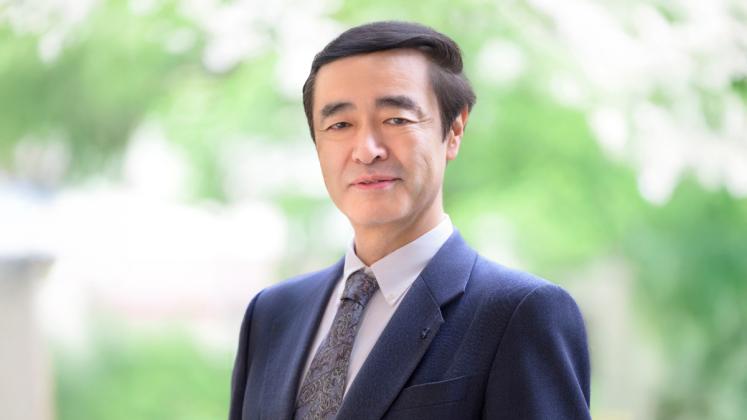On 22 May, UNU will host “Art and Science: Towards a New Framework”, a conversation with Dr. Nobuhiro Hayashi, Vice President for International Strategy and Engagement at the Institute of Science Tokyo. The event will start at 18:30 in the 2F Reception Hall at the UNU Headquarters in Tokyo.
The event has been organized with support from the German Centre for Research and Innovation Tokyo (DWIH Tokyo), to commemorate the photo exhibition “Fascination of Science” by renowned German photographer Herlinde Koelbl, currently on display at UNU Headquarters.
Art and science are often seen as separate domains, however, they have deep structural and philosophical parallels. Both seek to explore, interpret and represent the world through curiosity and creativity, but with vastly different outputs. Throughout history, many scientists – including Leonardo da Vinci, Carl Sagan, and Albert Einstein – have used art adeptly as both a source of expression of their work and as inspiration. However, modern education tends to divide art and science, with little overlap.
Dr. Hayashi will join Ms. Kyra “Kiki” Bowman, UNU Head of Communications, to explore the future of science and art and its role in society. The conversation will reimagine the relationship between art and science. How can art make science more accessible and meaningful to the general public? Could art function as a cognitive tool for scientists? Can artistic thinking in the scientific process bring deeper imagination, observation and creativity? Would this challenge scientists to reformulate how research and development is approached?
The UNU Conversation Series aims to foster audience participation; you are encouraged to engage with the speakers during the conversation and at the reception that will follow, where all event attendees are invited to enjoy hors d’oeuvres and drinks while exchanging ideas and making new contacts.
Please note that this event will be in English. Advance registration (by 21 May at 15:00) is required. Please click on the REGISTER button above to access the online registration page.
Please be prepared to present identification at check-in.
UNU@50
This event is part of the UNU 50th anniversary celebration. To learn more, visit: https://unu.edu/unuat50
About the speaker
Dr. Nobuhiro Hayashi has served as vice president for international affairs of Tokyo Institute of Technology (formerly Tokyo Tech), since April 2022. He also serves concurrently as professor at the School of Life Science and Technology, a position he has held since May 2021.
Dr. Hayashi holds a bachelor’s degree in physics from the University of Tokyo and master’s and doctoral degrees in life chemistry from Tokyo Tech.
Early in his career, Dr. Hayashi joined the Institute for Comprehensive Medical Science at Fujita Health University, where he served as lecturer, assistant professor, and associate professor. During this period, Dr. Hayashi also lectured at Yamagata University's Faculty of Engineering, Nagoya University's School of Engineering, and Gifu University’s Faculty of Engineering, and was also a visiting researcher at RIKEN.
Dr. Hayashi returned to Tokyo Tech in August 2008 as associate professor at the Graduate School of Bioscience and Biotechnology. He maintained this position at the newly formed School of Life Science and Technology when Tokyo Tech merged its undergraduate and graduate schools in April 2016.
Dr. Hayashi specializes in proteomics, molecular biology, protein science, biophysics and structural biology, and is member to the Protein Society USA, American Society for Biochemistry, Molecular Biology, Protein Science Society of Japan, Molecular Biology Society of Japan, Japanese Biochemical Society and Biophysical Society of Japan. He holds 12 Japanese patents and has authored over 90 international articles.
On 1 October 2024, Tokyo Tech and Tokyo Medical and Dental University merged to establish the Institute of Science Tokyo . As Vice President for International Strategy and Engagement, Dr. Hayashi is now promoting the institution’s mission of “advancing science and human well-being to create value for and with society”.



